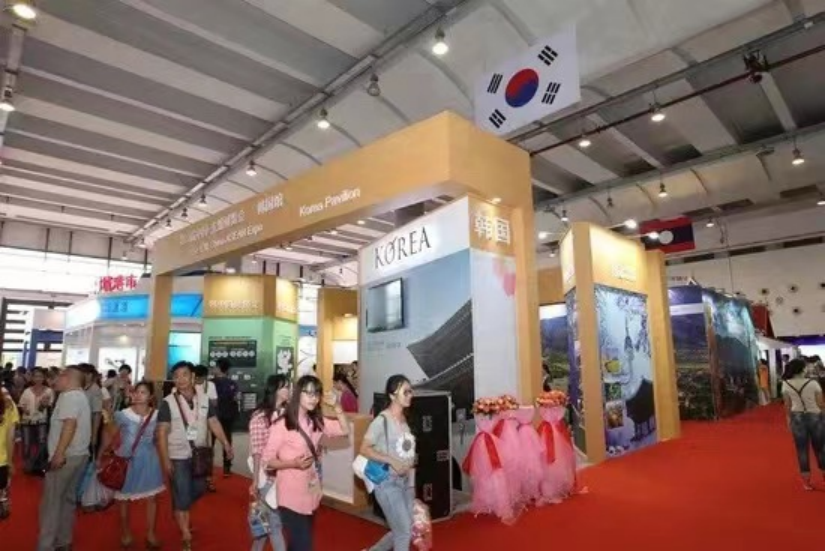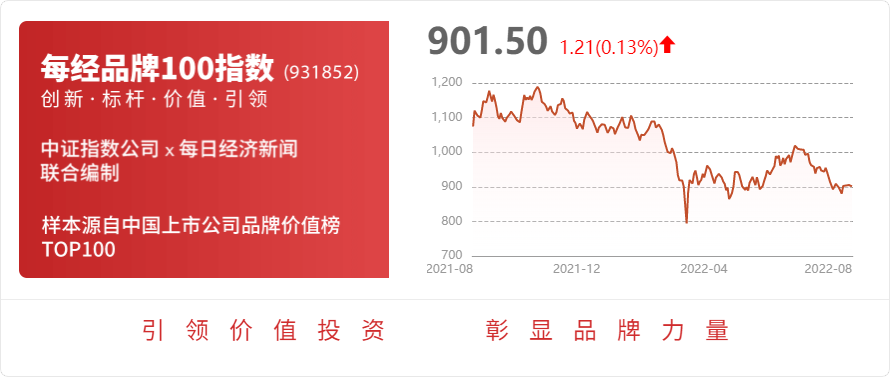Economic and trade cooperation is the "cockpit stone" of China -Japan -South Korea relations
Author:China Newspaper Time:2022.09.14

For a long time, China, Japan, South Korea, and China, Japan, and China, Japan,, and South Korea have been closely integrated with bilateral economic and trade cooperation between China, Japan, and China and South Korea. Economic and trade cooperation occupies an important position in the multilateral relations between China, Japan and South Korea and their respective bilateral relations. Especially under the current complex and changing international political and economic situation, the three countries have strengthened economic and trade cooperation to conform to economic globalization and regional integration.
"The total amount of GDP of China, Japan and South Korea accounts for about 20%of global GDP. Among the member states of RCEP, China, Japan and South Korea GDP account for about 90%. No matter from which perspective, China, Japan and South Korea have great potential. Yang Bojiang, director of the Japan Institute of Social Sciences, said in an interview with the media.
The economic and trade amount between the Three Kingdoms has exceeded 800 billion US dollars
China, Japan, and South Korea are also the center of Northeast Asia, and they are also important global economies. They are an important part of East Asian cooperation. They occupy an important position in the world economic map and international economic and trade cooperation. Before the signing of RCEP, China, Japan, and South Korea have been exploring for many years of investment and trade.
In November 1999, the then Prime Minister of the State Council of the State Council, Zhu Rongji, Japanese Prime Minister Kobayashi, and South Korean President Kim Daezo attended the Breakfast Club during the Filipino attending ASEAN, China, Japan and South Korea (10+3). The cooperation within the framework marks the official launch of the cooperation mechanism of the Three Kingdoms.
"The reason why the cooperation mechanism of the Three Kingdoms was officially launched is because the connection and cooperation between China, Japan and South Korea in the East Asian production network system is getting closer and closer. It is necessary to require; on the other hand, from the perspective of external causes, the Asian financial crisis led China, Japan and South Korea to have the actual demand for heating at the time. "Zhang Jianping, a researcher at the International Trade Economic Cooperation Research Institute of the Ministry of Commerce, told the reporter of the China Report.
In 2000, the three -party leaders decided to meet regularly within the 10+3 framework at the second breakfast meeting. On December 13, 2008, for the first time, the Three Kingdoms held a China -Japan -South Korea leader meeting outside the 10+3 framework. The meeting signed and issued the "Joint Statement of the Three Kingdoms Partnership".
At the 2003 China -Japan -South Korea Summit, the leaders of the Three Kingdoms jointly signed and published the "Declaration of China, Japan and South Korea Promoting the Three Kingdoms Cooperation"; in 2007, the China -Japan -Korea Investment Agreement was officially launched; in May 2012, in Beijing, in Beijing, it was under the holding of Beijing. During the Japan -South Korea Summit, the Three Kingdoms signed an agreement.
"It can be said that this investment agreement lays the corresponding foundation for RCEP and sets an example of investment protection rules." Many people in the industry commented.
For more than 20 years of cooperation in China, Japan and South Korea, the three countries have established 21 ministerial meetings and more than 70 dialogue mechanisms, covering many fields such as politics, economy, education, youth, culture, environment, health, disaster management, and media.
China, Japan and South Korea are important economic and trade partners. In 2021, the economic and trade volume between the three countries exceeded 800 billion US dollars. According to data from the Ministry of Commerce, over the past 20 years, China, Japan, and South Korea's economic and trade cooperation have continued to deepen, and the scale of trade, investment, and personnel exchanges in the three countries has expanded rapidly, and the degree of regional economic integration has continued to increase.
"The East Asian economic circle led by China, Japan and South Korea has become an important engine of the global economy. Under the current situation of unstable world situation and the dual influence of epidemic conditions, global economic integration is facing greater challenges. As the world's second, third and seventh, Large economies, China, Japan, and South Korea are closely working together to follow the concept of the community of human destiny, adhering to the rules of multilateral free trade systems, which will help the world economic recovery and integration process, it will definitely contribute to the global economic prosperity Shi Ming, director of the China -Japan -Korea Enterprise Exchange Center, told the reporter of China Report.
The year of China and South Korea: the bilateral trade amount is 72 times that of the year of the establishment of diplomatic relations
On August 24, 30 years ago, China and South Korea established diplomatic relations. Today, the relationship between the two countries has reached the "year of standing."
In the past 30 years, China -South Korea's establishment of diplomatic relations has achieved leapfrog development in bilateral trade and investment cooperation. The annual trade volume of the two countries increased rapidly from less than 5 billion US dollars in the early days of establishment diplomatic relations to US $ 362.4 billion in 2021, which was 72 times that of the year of the establishment of diplomatic relations.
In the process of the booming economic and trade relations between the two countries, the signing of the China -Korea Free Trade Agreement has played a vital role. Since the signing of the China -Korea Free Trade Agreement in 2015, the two parties have reduced tariffs eight times. China has exceeded 40%of the tax purpose of zero tariffs on imported goods in South Korea. In terms of openness, the proportion of freedom trade between the two parties exceeds "tax items and 85%of the trade amount". The scope of the agreement covers 17 areas such as cargo trade, service trade, investment, and rules, including "21st Century Economic and Trade Issues such as e -commerce, competitive policy, government procurement, and environment.
Earlier this year, the effective implementation of the "Regional Comprehensive Economic Partnership Agreement" (RCEP) provided a broader space for the further deepening economic and trade cooperation between the two countries. At the press conference of the Ministry of Commerce, Shu Jingsing announced the bilateral trade volume of China and South Korea in the first half of this year. "In the first half of this year, the bilateral trade volume reached 184.25 billion U.S. dollars, a year -on -year increase of 9.4%. In the context of the global economic fragile recovery, China and South Korea's trade remained rapidly, which fully showed that the economy of the two countries had strong complementarity, and fully demonstrated it. The toughness and potential of the two parties' economic and trade cooperation. "
"The reason why China -Korea economic and trade cooperation is becoming increasingly closer is that in the final analysis, the economic structure of the two countries is complementary, and the supply chain supply chain of the two parties can effectively connect and deeply integrate." Zhang Jianping analyzed. China -Japan bilateral trade volume reached 371.4 billion US dollars, a record high
This year marks the 50th anniversary of the normalization of China -Japan diplomatic relations. In 50 years, China -Japan exchanges and cooperation have achieved geometric growth and leap -up development in many fields from scratch, from small to large. In particular, the development of economic and trade cooperation between the two countries has developed rapidly. The large volume of 100 million dollars provides strong support for the development of the two countries.
According to Japanese customs statistics, the trade volume of bilateral goods in China and Japan in 2016 was US $ 270.50 billion. From 2017 to 2021, the total amount of goods trade between the two countries has been growing. In terms of investment, Japan is one of China's important foreign investment sources. As of the end of 2020, Japan's cumulative projects in China had approximately 53,600 projects, with an actual amount of US $ 119.1 billion, ranking first in China's foreign investment sources. Although China starts late and has a small scale at Japan, its development speed is rapid. As of May 2021, China ’s direct investment in Japan’ s entire industry has accumulated $ 4.78 billion.
From the statistics of China, in 2020, China's trade with Japanese goods increased by 0.8%year -on -year, accounting for 7.0%of foreign trade, of which the export of daily exports fell by 0.4%, and the imports of daily imports were 1.8%. 5.5%and 8.5%.
The latest data shows that even under the epidemic, China -Japan trade still increased against the trend. In 2021, China -Japan bilateral trade volume reached 371.4 billion US dollars, an increase of 17.1%year -on -year, a record high. At the same time, as of the end of 2021, Japan ’s cumulative investment in China reached US $ 123 billion, ranking first in the ranking of China’ s investment countries, and China is still Japan ’s largest trading partner, an important import and exporter country.
Although there are some differences and disputes in the economic and trade fields in the field of economy and trade, there are great mutual benefit cooperation in extensive fields such as scientific and technological innovation, intellectual property protection, fiscal finance, medical care, pension care, energy conservation and environmental protection, tourism and tourism, and tourism and tourism. space. With the effectiveness of RCEP, the two countries, including bilateral regional trade, investment, will be further increased.
In an interview, the Chinese ambassador to Japan's ambassador to Japan said in an interview that the potential for the development of China -Japan economic and trade cooperation has always been a "cockpit stone" and "pushing device" of the relationship between the two countries. The two parties should dig deep into cooperation potential, cultivate and create new growth points, and continue to grow common interests. The Japanese side should avoid restricting normal economic and trade science and technology cooperation on the grounds of economic security. It should maintain a fair and open trade investment environment, and maintain the security and stability of the supply chain of the industrial chain.
Facing the complex environment, choose the correct way of cooperation
As an important regional and world -related economy, China, Japan and South Korea, have played a positive role in maintaining East Asia and Pingping, leading regional economic cooperation, and promoting world development and prosperity. However, in the context of profound complex changes in the current situation of international regions, the development of China -Japan -South Korea relations is also facing challenges.
"In the past 20 years, in terms of economic and trade frictions, there will be some" double anti -"surveys on agricultural products in China, Japan and South Korea, and some anti -dumping measures." Zhang Jianping told the "China Report" reporter, "In addition, some major ones are major ones. Political incidents, such as the Diaoyu Islands incident and the Sade incident, have also had a negative impact on the economic and trade relations between China, Japan, China and South Korea. "
In Zhang Jianping's opinion, the process of globalization has now encountered obvious resistance, and Japan and South Korea have also received more and more pressures from the United States. Essence However, Japan and South Korea and China have formed a close and difficult to separate economic and trade connection. From this perspective, in the future, China, Japan, and South Korea still need to continue to strengthen their exchanges in economic and trade. In particular, Japan is facing aging and declining; South Korea's population is only more than 50 million, and it is stopped growing. Therefore, Japan and South Korea's important external market demand and driving force in the future are economically most reasonable and most realistic.
At present, Japan and South Korea are the top five trading partners in China. The scale of investment between China, Japan, China and South Korea is also rising. The strengthening of pragmatic cooperation between China, Japan and South Korea is of great significance for promoting regional integration and global economic cooperation.
"China, Japan, and South Korea should seize the opportunity of RCEP to take effect and strive to achieve major breakthroughs. RCEP is not only the first free trade agreement between China, Japan, Japan and South Korea, but also in tariff reduction, market access, regional supply chain Adjustment and other aspects have laid an important foundation for the construction of the China -Japan -Korea Free Trade Zone. China, Japan, and South Korea must use the rules of RCEP to make bilateral and three -sided cooperation more in line with reality and vitality, so that the trade and investment between each other continues to be able to continue to get possible Growth can further drive the health and stability of regional economic integration. "Zhang Jianping pointed out that China, Japan and South Korea need to use long -term strategic vision to comprehensively consider future comprehensive development and correct cooperation methods.
In Shi Ming's view, after the official effectiveness of RCEP, the members of the agreement will continue to eliminate trade investment barriers, integrate supply chains and industrial chains. As a major economy in the domain, China, Japan and South Korea will play an important role.
Article: "China News" reporter Zhang Lijuan
Photo source: Xinhuanet, the official website of the East Expo
Responsible: Xu Hao
- END -
Transaction is changing!Huitian thermal power: 19.77% of the nearly 3 trading days

Every time AI News, Huitian Heat Electric (SZ 000692, closing price: 5.15 yuan) is...
The whole network boiling point | The foreign trade volume in Beijing, Tianjin -Hebei has risen steadily; the total value of foreign trade imports and exports in the first seven months of my country increased by 10.4%year -on -year; the international community severely criticized Perosi to visit and

notWeather: Today is cloudy, Dongfeng is 4-5, and the probability of precipitation...